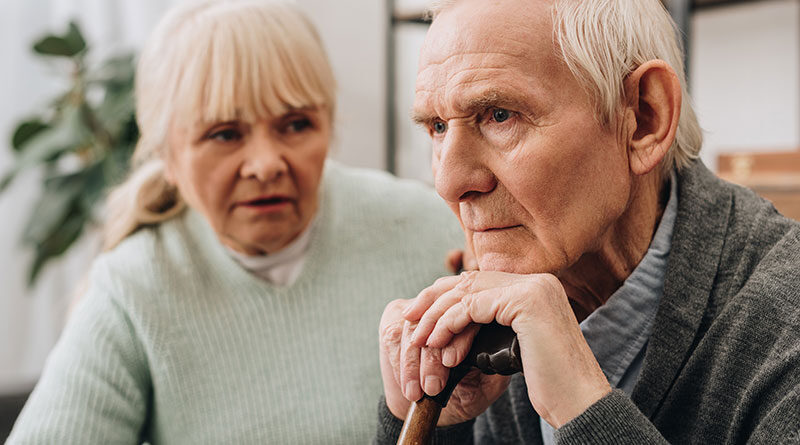NHS Launches New Dementia Diagnosis Drive
Hundreds more people will be checked for dementia thanks to a new specialist service being trialled across the country, the NHS has announced.
Care home residents will be proactively assessed for the condition by specialist nurses and other healthcare professionals through 14 new pilot schemes being rolled out in the new year.
The new scheme comes as the NHS leading dementia expert said that family and friends can
play a key role in spotting signs of dementia when visiting loved ones this Christmas.
During the pandemic, the number of people diagnosed with dementia was inevitably impacted and experts say this trial will help increase the number of diagnoses.
In the new local dementia drives, GPs will share a list of care home residents without a dementia diagnosis.
Staff involved in the pilot will then check with the care home to see if those listed have memory problems and residents will be offered be a full face-to-face assessment.
The clinician will review a person’s use of medication as well as speaking to the care home r
esident’s family and friends to determine whether they have dementia.
NHS England is investing £900,000 to launch two pilots in each of England’s seven regions.
A dementia diagnosis helps NHS and care home staff manage people’s condition better and ensures they are not prescribed unnecessary medication.
The fourteen pilots spread across the country will be launched from January following a successful trial in Norfolk.
More than 100 care home residents were given a face-to-face assessment in Norfolk, with 95 people receiving a dementia diagnosis.
The family of one of the residents received a diagnosis thanks to the trial said it “gave her peace of mind”.
Professor Alistair Burns, NHS England’s national clinical director for dementia, said: “The pandemic has naturally had an impact on the number of people diagnosed with dementia, with elderly people seeing fewer people to protect themselves from Covid-19.
“The NHS is determined to ensure those who developed dementia during the pandemic are given a diagnosis as it will open up doors to further support for people and their families who suffer from this heart-breaking disease.
“There are many things we can do in the NHS to care for and support people if they do get a diagnosis, and importantly there is support for their families and carers too.
“So if you have noticed over the festive period that someone has symptoms, please encourage them to visit their GP for an assessment – the sooner someone is seen the quicker the NHS can support them.”
The NHS Long Term Plan committed to offering better support for people with dementia through
more support in the community through enhanced community multidisciplinary teams and greater personalised care.
The latest NHS figures show that 451,992 people in England have a dementia diagnosis, up 2.8 per cent on last year.
Referrals to memory services have returned to pre-pandemic levels with 301,218 in 2021/22.
Something as simple as forgetting to put the oven on for the Christmas turkey may be a warning that a loved one is experiencing the early stages of dementia. Other things to look out for are:
- Confusion in a new environment – someone may beco
- me disorientated or confused when in a new place. A family holiday in a hotel can be a time when a person can become confused any may include trying to get into the wrong bedroom.
- Forgetting the names of loved ones to the extent that it causes embarrassment.
- Being at a relative’s house where the lay out is unusual could put a person’s memory and orientation to the test.
- Forgetting someone’s present – it might not be a very close relative but sometimes a niece or a nephew’s present can be forgotten as it slips from memory.
- Complex tasks such as cooking a big Christmas dinner for a large number of people. The sign could be something as obvious as forgetting to switch the oven on, forgetting to put the sprouts on or cooking things in the wrong order.
Mark MacDonald, Associate Director of Advocacy and System Change at Alzheimer’s Society, said: “Diagnosing dementia is crucial to unlocking the right care and support, so we’re pleased NHS England is prioritising the diagnosis of people in care homes through this initiative. Knowing someone has dementia can transform their care, ensuring they receive the right kind of support, and that families and carers get the information and guidance they also need after a diagnosis. We know the vast majority of those who have received a dementia diagnosis see it as a positive step, albeit one which can often be life-changing. If successful, we want to see this pilot rolled out as soon as possible across England as well as a focus on improving dementia diagnosis for everyone, both in and out of care homes.”





